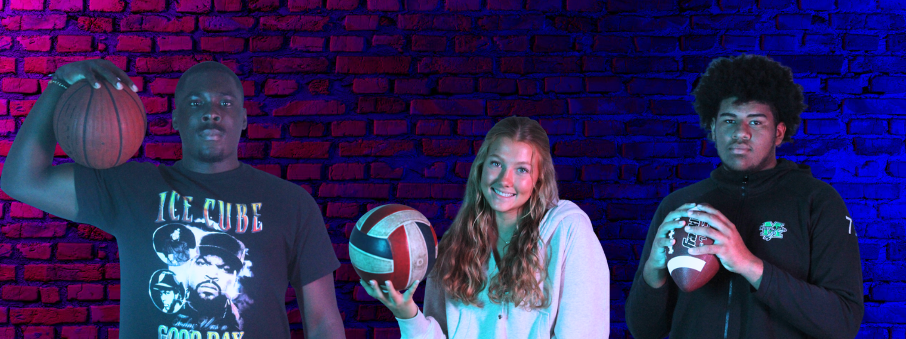On Oct. 2, the Georgia High School Association (GHSA), the governing body for all Georgia athletics and activities, deemed high school athletes to be eligible to engage in third-party sponsorships, known as name, image and likeness (NIL) deals.
NIL refers to the use of the athletes’ name, image and likeness through marketing and promotions. This involves brands and companies compensating a student athlete for promoting their brand, or appearing in advertisements. Usually this is mainly promoted and seen in college athletes.
“I think it’s cool that high school players can [earn] money for playing the game they love. [ I would] definitely [participate since] I already play the sport so I might as well get [paid] too,” senior varsity football player Lennon Liburd said.
NIL deals can be very effective for students who want to gain further advantage of their success with their sport.
“I think [NIL deals are] a great opportunity for athletes [who] are going to the collegiate and professional level,” senior Sarah Wilson said.
According to “How NIL Money Made Michigan’s Football Program Even Stronger,” published in Sports Illustrated’s Oct. 2 issue, “[NIL is] primarily a way for the most successful athletes to capitalize on their achievements.” In the article “GHSA passes NIL, restructures playoffs for three classifications,” from The Atlanta Journal Constitution, Georgia officials believe the rule will have “little effect on high school athletes and that the compensation will be kept small and local.”
“Locally I’d [represent] Smith & Davis,” senior Nick Carrino, who runs MHS Cross Country and Track and Field, said.
But some McIntosh Chiefs believe in dreaming bigger than just local sponsorships.
“[I would want to promote] probably something like Nike, [especially because] the school is already sponsored,” Liburd said.
By sponsoring merchandise, local car dealerships and local restaurants, athletes can draw attention to these businesses giving the student-athlete compensation, but those businesses wouldn’t be able to sponsor your school team.
“You can’t say ‘Hey, I’m the McIntosh quarterback and I’m over here at a car dealership.’ You can’t advertise the school,” McIntosh Football Head Coach Derek Smith said.
Students can, however, sponsor what they wear for the team’s practices. Chiefettes Dance Team member Sarah Wilson (12), would like this kind of arrangement.
“For all of our practice wear, [the Chiefettes] wear Nike bottoms and Lululemon tops [so] I would love to be sponsored by Lululemon,” senior Sarah Wilson said.
As lucrative as a NIL deal sounds, there are downsides of such deals for high school students.
Dr. Scott Grant, a NIL educator and owner of Triple Threat Leadership, understands the negative effects that can happen to high school athletes who participate in NIL deals and why it’s important to be educated in NIL deals if participating.
“[Since] most high school kids are under the age of 18, technically [they] are not allowed to enter legally into a binding contract. [There have been] cases where kids [have] parents [or] guardians are the ones signing the contract on behalf of the student, and they are signing [these deals] that they don’t understand. There’s a lot more than just, ‘Oh, I’m going to do a deal, look at me’ there’s a wide variety of things that you have to understand before you move forward in these types of elements,” Grant said.
These deals aren’t just for the “elite” athletes. Any athlete can get a NIL deal by putting in the work to build their brand.
“[You’ll see] athletes who are going to just do [NIL] just because of their high level ability. The rest of them are going to be the 15th man on the basketball team who has built a social media following and never really plays. Part of it is kids becoming entrepreneurial and figuring out what that is,” Grant said.

